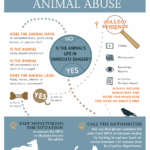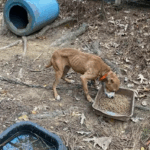The Royal Society for the Prevention of Cruelty to Animals (RSPCA) stands as one of the world’s most recognizable animal welfare organizations. Established in 1824, it has a storied history of championing the cause against animal cruelty and advocating for the rights of various species. However, an unsettling discourse has emerged in recent years surrounding the organization’s efficacy and relevance in today’s socio-political landscape. Many animal lovers and activists express concerns that the RSPCA has departed from its foundational mission. This article endeavors to critically evaluate whether the RSPCA has, indeed, lost its way.
To embark on this analysis, it is imperative to recognize the core values that originally galvanized the establishment of the RSPCA. Founded with the noble objective of preventing cruelty and promoting kindness to animals, the charity quickly became synonymous with animal welfare reform. It pioneered numerous legislative advancements that significantly bettered the lives of domesticated and wild animals alike. However, the modern trajectory of the RSPCA demonstrates a notable shift in focus, prompting inquiry into the motivations and methodologies of such changes.
One significant observation is the perceived prioritization of public relations and fundraising over direct action to alleviate animal suffering. The RSPCA has increasingly engaged in high-profile campaigns designed to capture media attention and attract donations. While this approach may bolster its financial resources, it raises questions about the authenticity of its advocacy efforts. Has the organization become more of a brand than a bastion for animal justice? An overemphasis on marketing can inadvertently overshadow the critical mission of effecting tangible change in the lives of animals, leaving the public to wonder if the charity’s heart still aligns with its historic principles.
Additionally, there are claims that the RSPCA’s operational strategies have become overly bureaucratic, potentially stifling the passion and urgency that are essential in the fight against animal cruelty. The organization’s tiered structure, while intended to ensure efficiency and oversight, may also inhibit rapid response capabilities. In a world where animal welfare issues often require immediate action, an overly complex decision-making process can lead to missed opportunities for advocacy and intervention. This rigidity can be demoralizing for employees and volunteers whose commitment to animal welfare is founded on a desire for swift, impactful action.
Another layer of complexity arises from the shifting landscape of animal welfare legislation and societal values. The RSPCA, once a leading voice in engendering change, now finds itself in an environment where numerous organizations and grassroots movements are emerging with differing philosophies. Some of these groups espouse radical animal rights ideologies that reject traditional pet ownership models altogether. The RSPCA’s recent strategies appear to reflect a response to this fragmentation within the animal welfare community, seeking to appeal to the broader public without alienating its long-standing supporters. However, this balancing act may dilute the organization’s core messages, rendering it less effective in advancing specific animal welfare causes.
Critically examining public perception offers further insights into the RSPCA’s challenges. The emergence of social media as an influential platform for raising awareness and galvanizing support has changed the dynamic of charitable advocacy. The RSPCA finds itself navigating a landscape where instantaneous feedback—both positive and negative—can shape its public image. In seeking to remain relevant, the organization may inadvertently compromise its steadfast commitment to animal rights. As public scrutiny intensifies, will the RSPCA prioritize its messaging over its mission?
The impact of financial sustainability is another pivotal consideration in this conversation. Charity organizations often grapple with the necessity of funding to maintain operational capabilities and programmatic initiatives. The RSPCA is no exception, and the imperative to secure donations can lead to the adoption of strategies that may veer away from the organization’s original pledge to prioritize animal welfare over all else. While financial viability is essential, it should not eclipse the mission of securing meaningful reform. The question is, can the RSPCA effectively balance its obligation to its donors with its responsibility to animals?
Moreover, the RSPCA’s approach to addressing animal cruelty has shifted, prompting skepticism about the organization’s commitment to its foundational mission. Reports have surfaced indicating that some individuals within the organization perceive a lack of focus on grassroots advocacy initiatives in favor of larger, media-driven campaigns. Although high-profile successes are laudable, they can overshadow the countless smaller acts of kindness and justice that are equally deserving of attention. A reevaluation of the criteria for defining success within the organization’s operations may be imperative to restore faith among supporters and beneficiaries alike.
An examination of the RSPCA’s contemporary initiatives sheds light on some positive advancements. Recent campaigns aimed at addressing animal trafficking, advocating for better conditions for farm animals, and promoting spay and neuter programs demonstrate a commitment to evolving challenges. Yet, the organization must remain vigilant in ensuring that these initiatives are not only well-publicized but also result in verifiable improvements in animal welfare. The effectiveness of these campaigns hinges upon transparency and accountability, two elements that should be at the forefront of any charity’s operational framework.
In conclusion, while the RSPCA remains a key player in the realm of animal welfare, an objective appraisal of its current trajectory raises significant concerns. The question of whether the RSPCA has lost its way is multi-faceted, interwoven with complex societal expectations, financial realities, and a dynamic landscape of animal rights advocacy. The organization must critically assess its strategies and reaffirm its commitment to the core principles that initially inspired its formation. With a renewed focus on direct action, transparency, and community engagement, the RSPCA can reclaim its position as an unwavering advocate for animal welfare, ensuring its legacy endures amid the evolving discourse surrounding animal rights.








